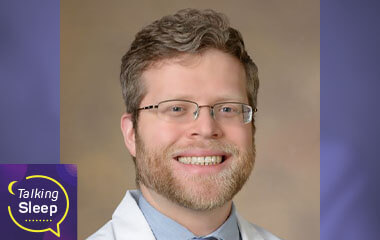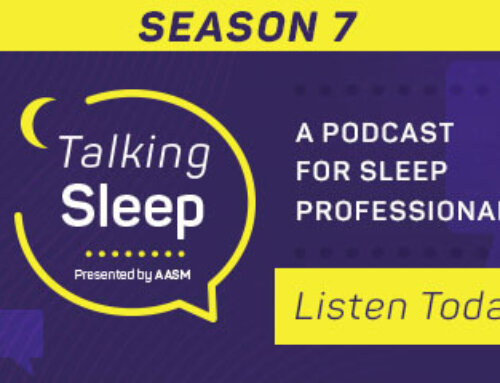Talking Sleep Season 4
Episode 16
Mind After Midnight
Dr. Andrew Tubbs, GUEST
 In this episode of Talking Sleep, we visit with Dr. Andrew Tubbs, a researcher in the Sleep and Health Research Program at the University of Arizona, to discuss the “Mind After Midnight” hypothesis. Dr. Tubbs’ recently published review summarizes the evidence for day-night alterations in maladaptive behaviors, including suicide, violent crime, and substance use, and examines how mood, reward processing, and executive function differ during nocturnal wakefulness. This episode discusses suicide and suicidal ideation and may be upsetting to some listeners. If you or someone you know is at risk for suicide, please call the Suicide and Crisis Lifeline at 988.
In this episode of Talking Sleep, we visit with Dr. Andrew Tubbs, a researcher in the Sleep and Health Research Program at the University of Arizona, to discuss the “Mind After Midnight” hypothesis. Dr. Tubbs’ recently published review summarizes the evidence for day-night alterations in maladaptive behaviors, including suicide, violent crime, and substance use, and examines how mood, reward processing, and executive function differ during nocturnal wakefulness. This episode discusses suicide and suicidal ideation and may be upsetting to some listeners. If you or someone you know is at risk for suicide, please call the Suicide and Crisis Lifeline at 988.
Andrew Tubbs has a doctorate in neuroscience from the University of Arizona, where he is currently a third-year medical student. His research interests focus on how sleep and circadian rhythms affect mental health and risk for suicide.
Episode Resources
- The Mind After Midnight: Nocturnal Wakefulness, Behavioral Dysregulation, and Psychopathology
- Nocturnal Wakefulness as a Previously Unrecognized Risk Factor for Suicide
- Relationship of Nocturnal Wakefulness to Suicide Risk Across Months and Methods of Suicide
- Suicidal ideation is associated with nighttime wakefulness in a community sample
- Circadian rhythms and risk for substance use disorders in adolescence
- A neuro-metabolic account of why daylong cognitive work alters the control of economic decisions

